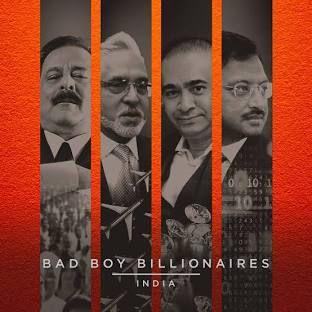
Dr. Malpani, you’re an angel investor. You back startups, nurture entrepreneurs, and believe in frugal innovation. But let’s cut to the chase. I don’t want to just be a successful founder—I want to be a billionaire. Like the big boys. Ambani. Adani. What’s the secret sauce?
Dr. Malpani: You want the real playbook? Not the kind they teach at IIM or peddle at startup conferences?
Exactly. No jargon. Just the raw truth.
Dr. Malpani: Alright, here goes. Step one: win the ovarian lottery. Get born into the right family. Being a first-generation billionaire is hard work. Much easier if your surname opens doors. Being born an Ambani or marrying one? That’s like starting the game on Level 100.
So nepotism is the first investment round?
Dr. Malpani: Precisely. And don’t underestimate its ROI. Connections beat competence. But let’s say your parents weren’t billionaires. You’ve still got options. Build a spider web of shell companies, preferably incorporated in exotic tax havens. Mauritius, Cayman Islands, BVI—someplace where transparency goes to die.
But why so many shell companies?
Dr. Malpani: So you can move money around like a magician with cards. No one knows where the cash came from, or where it went. It’s not money laundering. It’s “structured finance.” Sounds cooler.
But what if someone investigates?
Dr. Malpani: That’s why you retain the most expensive lawyers in town. The kind who wear black coats and wield delay tactics like swords. Their job isn’t to win in court. It’s to make sure no one ever gets there.
Hmm. And the money? Where does the initial capital come from?
Dr. Malpani: Ah, the classic round-tripping. You take black money out of India, clean it abroad, and bring it back disguised as foreign investment. Voila! You’re an “FDI success story.”
And to protect myself?
Dr. Malpani: You ring-fence your personal assets. Put your bungalow in your wife’s name. Your yacht under a Singapore holding company. That way, when the house of cards collapses—and it often does—you walk away with your Birkin bag intact.
This sounds… illegal?
Dr. Malpani: Illegal is such a fuzzy word in India. Everything is technically illegal until you pay someone to make it legal. And that brings us to the heart of it: bribe politicians and bureaucrats. But do it subtly. It’s not a bribe—it’s “consulting fees,” “party donations,” “facilitation charges.”
And the media? Won’t they expose this?
Dr. Malpani: Only if you forget to pay the press. In India, truth is negotiable—especially if you buy enough ad space. Plant puff pieces. Host industry award shows. Buy entire media houses if needed. Own the narrative. Better yet, write your own.
What about critics online?
Dr. Malpani: That’s where your troll army comes in. Hire a digital PR agency that can flood Twitter with glowing posts and attack anyone who questions you. Call dissenters “anti-national” and “urban Naxals.” Works like a charm.
This is a far cry from the “build a great product” and “serve your customer” advice I keep hearing.
Dr. Malpani: Of course. That advice is for the middle-class dreamers. The system doesn’t reward integrity—it tolerates it. If you want to win big, you have to play dirty—or, at the very least, look clean while doing it.
So you’re saying ethics don’t matter?
Dr. Malpani: I’m saying the game is rigged. But here’s the twist: it doesn’t have to be.
What do you mean?
Dr. Malpani: You can either complain about corruption—or work to dismantle it. Startups can be built on trust and transparency. Governance can be reformed from the bottom up. If we had more whistleblowers, ethical investors, and active citizens, we could start turning the tide.
But doesn’t that sound naive?
Dr. Malpani: Idealism is only naive until someone makes it work. The point of this satirical list is to show how normalized corruption has become. We laugh at it, we accept it—and then we wonder why nothing changes.
So what can I do, as just one citizen?
Dr. Malpani: Speak up. Ask questions. Demand RTIs. Expose conflicts of interest. Fund or build civic-tech startups that track public expenditure. Create watchdog media. Help ethical founders scale. The antidote to crony capitalism is distributed accountability.
Sounds tough.
Dr. Malpani: It is. But the real billionaires—the kind history remembers—aren’t those who built empires on fraud. They’re the ones who left institutions behind. Gandhi wasn’t rich. Ambedkar wasn’t powerful. But their legacy outlasts every billionaire’s bank balance.
So, Dr. Malpani… I suppose I won’t become a billionaire following your method?
Dr. Malpani: (smiles) You may not be a billionaire. But you’ll sleep well at night. And in today’s India, that’s rarer than unicorns.
Conclusion: If you’re tired of watching the same corrupt game play out on loop, it’s time to stop clapping and start coding—systems, tools, movements that challenge the rot. As citizens, investors, and founders, we deserve better. But we won’t get it until we build it.
Check out
to learn how to fight back against bad billionaires and corrupt politicians who siphon off our national wealth to line their pockets